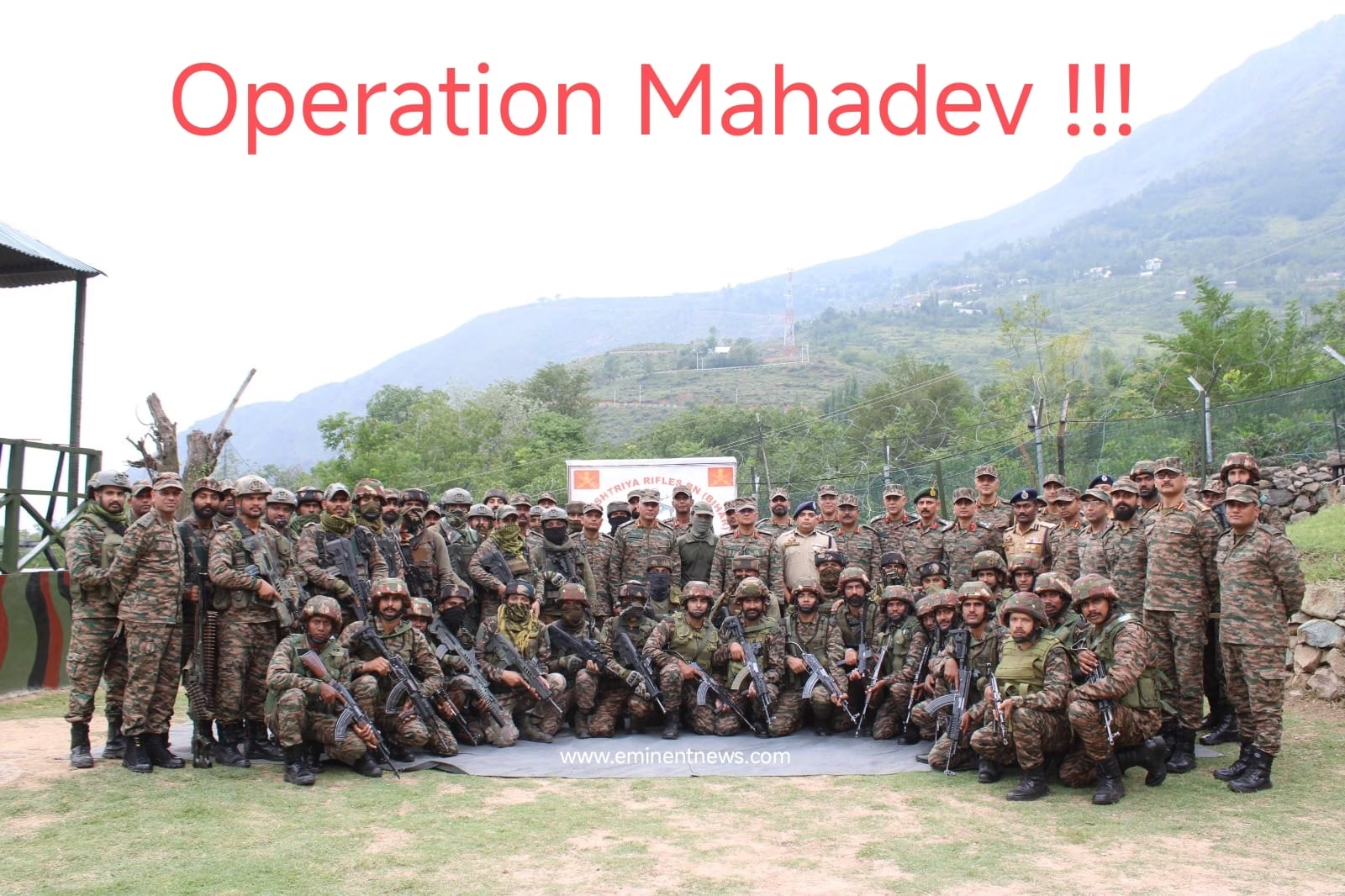Operation Mahadev was a major anti-terror operation conducted jointly by the Indian Army, CRPF, and Jammu & Kashmir Police in July 2025, immediately following the deadly Pahalgam attack in Jammu and Kashmir…
Context and Trigger
- Pahalgam Attack (April 22, 2025): Heavily armed terrorists ambushed a bus of tourists in Baisaran Valley, Pahalgam, killing over 28 people. The attack was claimed by The Resistance Front (TRF), an offshoot of Lashkar-e-Taiba, both of which are internationally recognized terror outfits.
- The attack marked one of the deadliest incidents in Kashmir since 2019, prompting national outrage and an urgent demand for accountability and retribution.
Execution of Operation Mahadev
- Objective: Neutralize the masterminds and direct perpetrators behind the Pahalgam killings, and dismantle their support network.

- Leadership and Forces: The operation was meticulously coordinated between the Indian Army, Central Reserve Police Force (CRPF), and Jammu and Kashmir Police.
- Intelligence and Planning: The terrorists were tracked for several weeks, with agencies monitoring encrypted communications and ground movement in the Dachigam forest area near Srinagar. Over 1,000 people, including locals and shelter providers, were questioned to build an intelligence profile and composite sketches.
- The Encounter: On July 28, 2025, security forces conducted a targeted raid in the Dachigam National Park forests. In the ensuing gunfight, three key Lashkar-e-Taiba terrorists—Suleman (alias Faizal), Afghan, and Jibran—were killed. Forensic analysis later matched weapons recovered from them, including AK-47 variants and an American M4 carbine, with those used in the Pahalgam attack, thereby confirming their involvement.
Identification and Forensic Proof
- The terrorists’ identities were validated through documents (including Pakistani voter IDs) and by detained accomplices who previously sheltered or supplied them with food.
- Ballistics matched the seized weapons with cartridge samples from the attack scene, and further forensic tests confirmed their role.
Broader Significance
- Strategic Messaging: The codename “Mahadev” refers to Lord Shiva in Hindu mythology, symbolizing the operation’s resolve and divine justice. Such codenames carry both operational secrecy and symbolic value in India’s security doctrine.
- Follow-On Operations: Operation Mahadev was part of a larger sequence, with Operation Sindoor targeting terror infrastructure across the border and further anti-infiltration drives (such as Operation Shiv Shakti) being launched thereafter.
National and Political Impact
- The successful completion of Operation Mahadev was announced by Home Minister Amit Shah in Parliament, with Prime Minister Narendra Modi publicly commending the security agencies for swiftly bringing the Pahalgam attackers to justice.
- The operation demonstrated India’s enhanced intelligence capabilities and commitment to decisive, evidence-backed anti-terror responses.
In Summary
Operation Mahadev stands out as a rapid, coordinated counter-terror response targeting the perpetrators of a heinous civilian massacre. It not only achieved its immediate objectives but also reinforced India’s broader security resolve, forensic competence, and integrated operations doctrine in Jammu and Kashmir…for state news click www.eminentnews.com



























